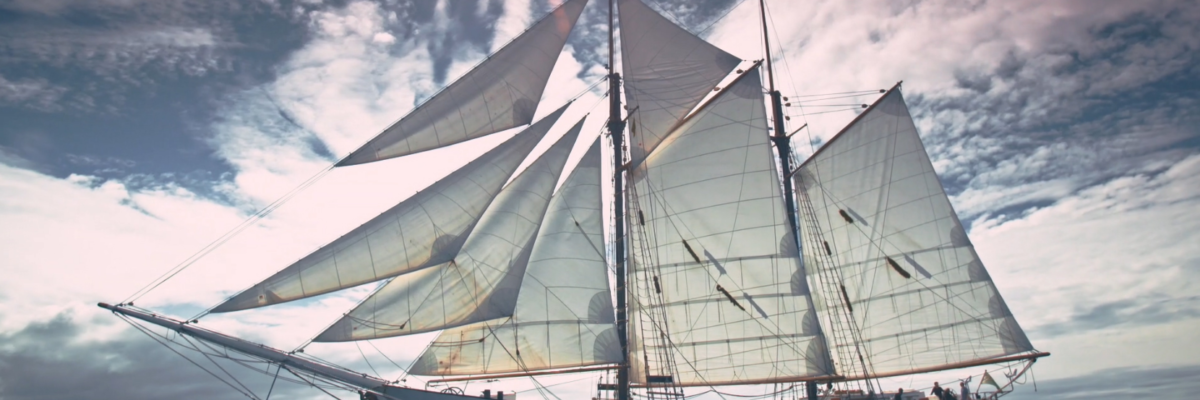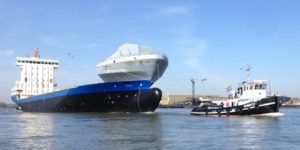
In mid October, the Avontuur made her maiden voyage from la Rochelle, France to the Port of Montreal. While maiden voyages happen regularly without much fanfare, the Avontuur is special. Originally built in Germany in 1920, this 43.5 meter schooner was completely refurbished in 2016 as the world’s first eco-friendly cargo ship, boasting eight sails, 15 crew members, solar panels, wind turbines, and the dream of creating ‘a greener and oil free trade path between Europe and North America’. This voyage marked the first oil-free commercial transatlantic journey of the 21st century.
“Beyond the oceans, our ambition at this specific moment is to offer a complete oil-free supply chain. This ship’s cargo was entirely transported by trucks powered with liquefied natural gas – fossil energy that is 50% cleaner than conventional gas,” said Portfranc Logistics. The Avontuur is owned by Timbercoast, which provides wind-powered cargo shipping and with the help of the Canadian government, and they plan to pilot the Avontuur through five future Atlantic crossings before 2020.
Running between ports in the North and Baltic seas, two more specially designed ships, the Rotra Vente and Rotra Mare deliver green  power equipment, including mast, nacelles (engine rooms) and rotor blades for wind turbines. These vessels were specially designed from existing vessels to allow heavy, roll on/roll off cargo to be transported without additional vessels entering the market and further contributing to overcapacity. In addition to a movable bow and ramp the vessels are equipped with the latest technology- they both have an extreme heavy cargo deck, a fully autonomous ballast-and deballastinstallation and the propulsion of the ships specially designed matching the hull form and performance criteria , achieving a maximum fuel efficiency.
power equipment, including mast, nacelles (engine rooms) and rotor blades for wind turbines. These vessels were specially designed from existing vessels to allow heavy, roll on/roll off cargo to be transported without additional vessels entering the market and further contributing to overcapacity. In addition to a movable bow and ramp the vessels are equipped with the latest technology- they both have an extreme heavy cargo deck, a fully autonomous ballast-and deballastinstallation and the propulsion of the ships specially designed matching the hull form and performance criteria , achieving a maximum fuel efficiency.
Also in use, The Finnish Estraden, a Norsepower vessel that uses Rotor Sail Solution technology so when wind conditions are good, the main engines can be throttled back, saving fuel and reducing emissions without losing the power needed to maintain speed and voyage time. The use of these hybrid powerd ships, which depend on both green energy and fuel as a Prius type vessel hybrid, demonstrates how more companies are working to prove that a conversion is possible in the shipping industry. This conversion to hybrid power would save $7bn a year and reduce the carbon emissions by the equivalent of 12 coal power plants.







